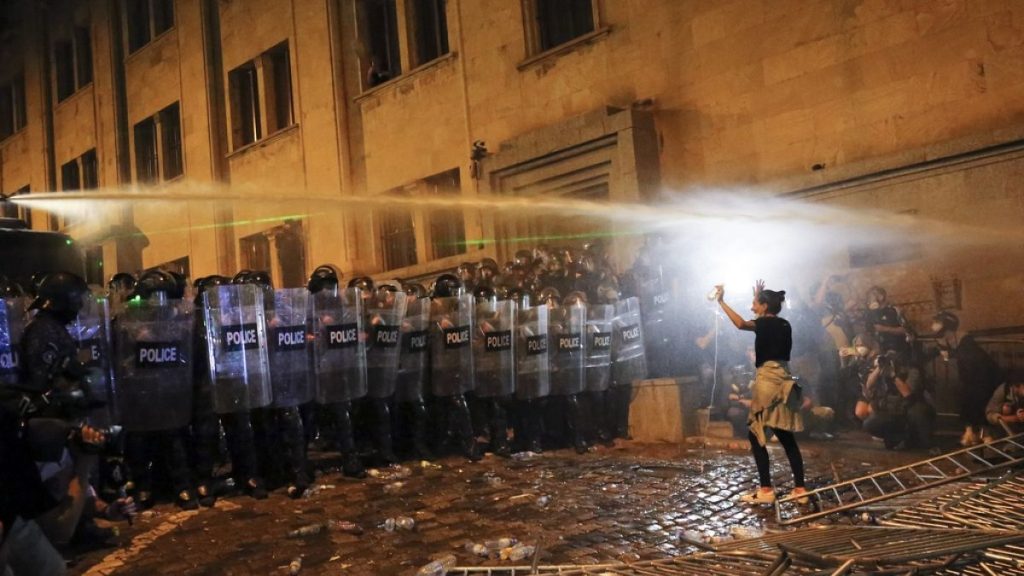Protests have erupted in Georgia over a controversial foreign influence law that critics fear could be used to suppress press freedom. Thousands of people in Tbilisi took to the streets as the country’s parliament debated the law, prompting a violent response from riot police who used rubber bullets, tear gas, stun grenades, and water cannons to disperse the crowds. The EU’s High Representative for Foreign Affairs, Josep Borrell, condemned the violence and called on Georgian authorities to respect the right to peaceful assembly. The draft legislation, dubbed the “Russian law”, would require media and non-commercial organizations to register as being under foreign influence if they receive more than 20% of their funding from abroad, leading to concerns about potential repression of the press and non-governmental organizations.
Critics of the bill argue that it could be used to silence dissenting voices, similar to the way similar legislation was used in Russia to target critics of the Kremlin. Supporters of the law, however, argue that it is necessary to protect Georgia’s national sovereignty. President Salome Zourabichvili expressed her disapproval of the police response to the protests, describing it as unwarranted, unprovoked, and disproportionate. She has vowed to veto the bill if it is approved by parliament. Borrell has warned that the adoption of the legislation could jeopardize Georgia’s aspirations to join the EU. Despite the country’s strong desire to become an EU member, the path to accession is still long, with the European Commission recommending candidate status for Georgia in November 2023.
Georgia has had a long-standing aspiration to join the EU, with support for membership among its citizens reaching as high as 81% in a recent poll. The small South Caucasus country has made efforts to align itself with European values and standards in order to meet the criteria for EU accession. However, the current political situation in Georgia, marked by protests and concerns over press freedom, could impact the country’s progress towards EU membership. The EU’s stance on the foreign influence law and its condemnation of the violence against protesters underscore the importance of upholding democratic values and human rights as Georgia strives to become a member of the European Union.
The violent crackdown on protesters in Georgia has raised international concern, with Borrell denouncing the use of force to suppress peaceful demonstrations. The excessive police response to the protests has been criticized by both domestic and international observers, with calls for authorities to respect the rights of citizens to express their views freely and without fear of reprisal. The ongoing political unrest in Georgia over the foreign influence law highlights the challenges the country faces in balancing national security concerns with the protection of civil liberties and democratic principles. As Georgia navigates its path towards EU accession, it will need to address these issues in order to meet the standards and criteria set forth by the European Union.


